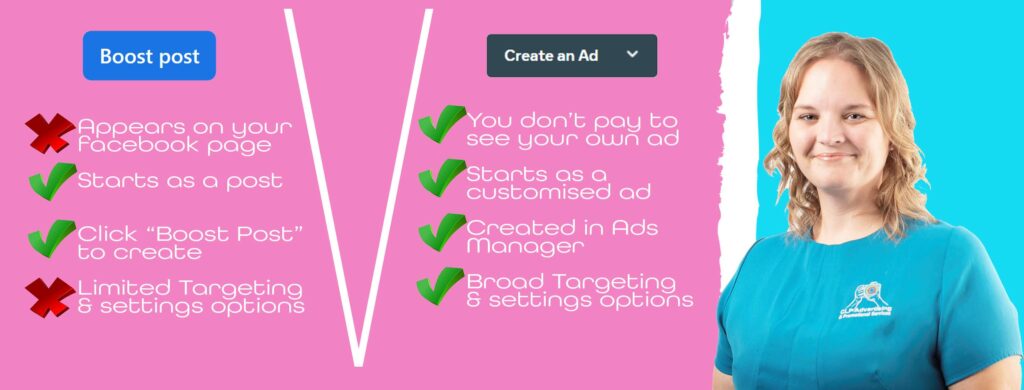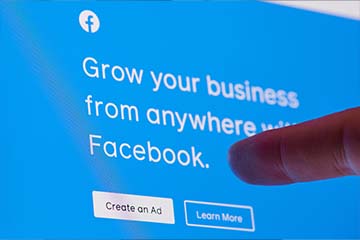
Learn how to dominate your Facebook ads campaign!
I get asked quite regularly (actually, if I’m honest, it is almost daily!) about boosting Facebook posts. To help you out, I thought it was time to put together a little guide for beginners on buying targeted Facebook ads, and the pros and cons of boosted ads and targeted ads.
What is a boosted post?
Boosted Facebook posts are a way for brands to increase their engagement on the platform. It is a quick way to get your content seen by more people, but you don’t have control over who those consumers are.
A boosted ad will start as a sponsored post, meaning it will appear for people who see your page, but the entire post is not shown unless you manually select or pay extra to boost it.

What is a targeted Facebook ad?
Targeted ads are a great way to reach consumers not only at the right time and place, but also in the suitable age group, in the right income bracket and so on. You can target specific demographics or those who live in particular areas, as well as those who have already expressed interest in your product or service by using keywords in their social media posts.
What is the difference between a boosted post and a targeted ad on Facebook?
As a consumer, you can not tell the difference by just looking at the posts as they are both classed as ‘sponsored’. However, the difference is significant when we look at what is happening in the background. A boosted post is just a paid ad that goes to anyone at any time, whereas a targeted ad goes to people specifically looking for your services and|or products or information you provide.
Say, for example, that you’re in real estate and you have a listed property worth $4milllion dollars. By boosting a sale post, the information could very well go to someone on Centrelink who could not afford the property, and you pay for them to click on that post. Instead, if you create a targeted ad and use a demographic with higher income, then only people who could potentially afford that property will see the ad. Targeted ads, therefore, have a much greater conversion rate (i.e. the rate at which clicks turn to actions such as sales) and are considered much better bang for your business buck.
So, how do you know when to boost and when to target?
I would always recommend targeting because you have limited control over a boosted post, and you always want to get the most out of your money!
Let’s say you want to hold an event aimed at attracting people who are travelling to the area. To help increase event interest, you can set a target specifically for people travelling to the location. Perhaps the event is health-related or a market day, in which case you can also target people who have interests in health and beauty, cooking or shopping.

Targeted Facebook ad campaigns -how to create a real ad campaign on Facebook
Facebook is estimated to have over 1.4 billion users, making it the most popular social media platform in action today. This number is staggering, and for businesses, that means there is an unprecedented number of potential customers within reach.
Creating a targeted Facebook ad campaign is not difficult, but we have four essential tips for creating an effective targeted ad campaign in our next blog post.
You do not want to miss out, so sign up to the CLP Community email list, and we will send our new blog posts right to your inbox. Alternatively, join our CLP Community Group on Facebook to stay in the loop.